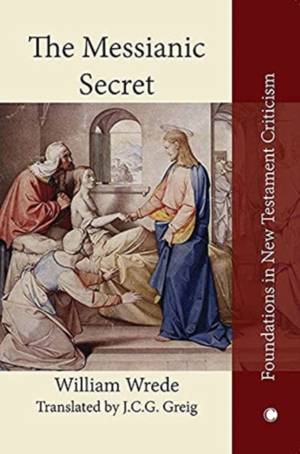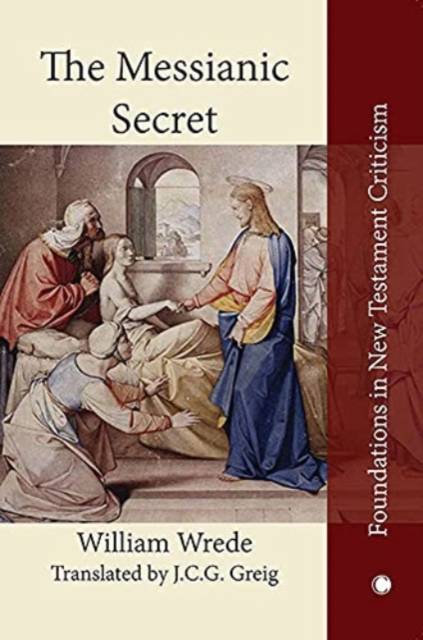
En raison d'une grêve chez bpost, votre commande pourrait être retardée. Vous avez besoin d’un livre rapidement ? Nos magasins vous accueillent à bras ouverts !
- Retrait gratuit dans votre magasin Club
- 7.000.000 titres dans notre catalogue
- Payer en toute sécurité
- Toujours un magasin près de chez vous
En raison de la grêve chez bpost, votre commande pourrait être retardée. Vous avez besoin d’un livre rapidement ? Nos magasins vous accueillent à bras ouverts !
- Retrait gratuit dans votre magasin Club
- 7.000.0000 titres dans notre catalogue
- Payer en toute sécurité
- Toujours un magasin près de chez vous
Description
The Messianic Secret, which one century on is still the point of departure for all studies of the Gospel of Mark and of an understanding of the literary methods of the Gospel writers, is now available in English in this translation by J.C.G. Greig. Wrede's primary concern in his discussion of Mark is the doctrine of the messianic secret, the notion of a Jesus who, assuming messiahship at baptism, keeps it secret for much of his ministry until, after the confessions of Peter, he introduces the disciples to the idea of a suffering and dying Messiah. The idea of such a secret can be shown, from a study of the other Gospels, to have developed variously, and above all to go back to a period prior to Mark's work as the earliest evangelist. Wrede finds the theological source of the idea of a secret about the messiahship in a contrast between what the Church came to think of Jesus and how his life had been understood during his ministry. He suggests that because the Church came to think of Jesus as Messiah after the Resurrection, they came to explain the lack of explicit declaration of his messiahship by Jesus during his ministry by suggesting that (nevertheless) Jesus had after all secretly revealed himself as the Messiah. The doctrine of the messianic secret is, says Wrede, the after-effect of the idea of the Resurrection as the beginning of Jesus' messianic office". Furthermore, if this doctrine could have arisen only at a time when nothing was known of any open claim on Jesus' part to be Messiah, this seems to be positive evidence that Jesus actually did not represent himself as Messiah. Wrede was among the first to recognise the creative contribution of the writers of the Gospels, and to emphasise the necessity of a historical approach to the Church's traditions if we are to avoid a naive misunderstanding of the perspective from which the Gospels are written. His work is thus the foundation stone not only in the study of Mark, about whom he still has much to teach us, but also in the vexed area of the contribution of the evangelists to the Gospel. In this field Wrede's work is still essential reading, unsurpassed by the advances of the Form Critics, the Redaction Critics, whose work draws directly on his, and even of the more advanced literary critics of the present day.
Spécifications
Parties prenantes
- Auteur(s) :
- Editeur:
Contenu
- Nombre de pages :
- 315
- Langue:
- Anglais
Caractéristiques
- EAN:
- 9780227176832
- Date de parution :
- 27-01-22
- Format:
- Livre relié
- Format numérique:
- Genaaid
- Dimensions :
- 234 mm x 155 mm
- Poids :
- 225 g

Les avis
Nous publions uniquement les avis qui respectent les conditions requises. Consultez nos conditions pour les avis.






